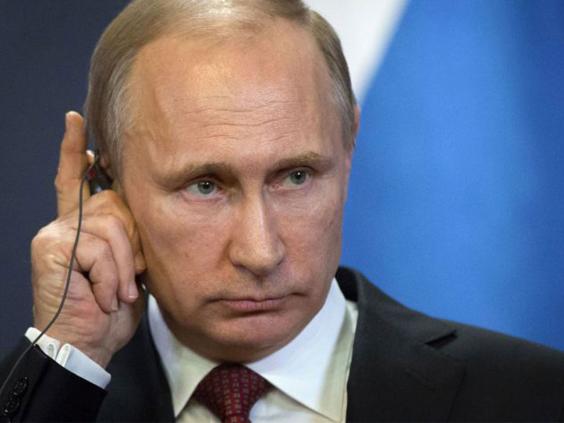Vladimir Putin has chased off his political enemies–the ones he hasn’t killed–just as readily as he’s made outside investors quickly retreat, wary of his tilt toward totalitarianism. One of the dispossessed, the former billionaire banker Mikhail Khodorkovsky, is biding his time in London until Putin’s ouster or death, assembling if not a shadow government then at least an ever-expanding “cabinet” of experts that might someday replace the Kremlin kleptocracy with a modern, uncorrupted state. The sweep of history is often uncooperative, however, so there’s no guarantee these men and ladies in waiting will ever be called to duty. Even if Khodorkovsky’s moment does arrive, perhaps his years in prison and abroad have made him estranged not only from his country’s land but also its modern spirit.
Masha Gessen, who’s consistently filed some of the very best analysis of Putin’s reign, interviewed the exile for Vanity Fair “Hive” and penned another great piece. An excerpt:
Soon after he was released from prison, Khodorkovsky came to the conclusion that Russia was not ripe for an armed revolution—and that, in any case, violent revolution would bring far more suffering than it could possibly alleviate. I sensed a hint of disappointment when Khodorkovsky laid out this conclusion for me in November 2014. He really does believe that armed struggle is the only threat that, in the present moment, could truly influence the regime. It was armed struggle, or the threat of it, that toppled the oligarchic government of Ukraine, in 2014. But most anti-Putin Russians are not prepared to make that kind of sacrifice. “And I think people do have the right to live a quiet life in our country,” Khodorkovsky admitted. “Things suck, but life goes on. And people go on, and accumulate a little bit of capital—apartments and things. And I guess as long as people can go on living like that, it would be wrong to break it. Russia has broken enough lives already, of enough of its citizens.” Khodorkovsky’s own life is a vivid example, and not the worst: his company was effectively confiscated by the state; his billions have been reduced to millions; many of his former employees are in prison; many more are in exile; one is dead; and Khodorkovsky himself cannot go home.
If there is no potential for immediate armed struggle, he acknowledged, “this regime cannot be toppled. It will continue moving along its own trajectory.” The trajectory cannot be indefinite. Like all closed systems, the regime will eventually come to an end—if only because Putin himself will eventually die. The question is, What happens then?
It could be 20 years from now, at which point Khodorkovsky will be in his 70s. He told me that he never said that his project would be completed in his lifetime: “Just because we may not see cold fusion in our lifetimes is no reason not to work on it.” His own plan is to devote the next 10 years preparing Russia for its next chapter: creating a network of many thousands who have a wide range of skills and experience working together. Quoting another Putin opponent in exile, Garry Kasparov, Khodorkovsky said, “We are running a marathon that can at any moment turn into a sprint.” He went on, “And when the starter pistol goes off, as can happen at any moment, society must know that there is a team capable of assuming the role of government. If we are not that team, then there will be another team that takes over. And if the other team doesn’t exist, then we descend into a crisis of governance.” That is the sad story of regime change almost everywhere.
Khodorkovsky’s math is straightforward: “Right now there are about two million people on the state payroll in Russia, including roughly 600,000 who actually work in the federal government. Out of those, tens of thousands will be lost”—in the transition to a new regime—“and will need to be replaced. Some of these people will have worked in key positions. This means that we need several thousand people, if not tens of thousands of people, who are capable of playing a political role that goes beyond technical competence: we need people who will be able to direct the process of transitioning to a new direction.”
The goal is twofold: first, to assemble an army of civilians who are capable of performing all the tasks that need doing in a country; and second, to find ways, in a nation where the public sphere has been effectively destroyed and communication severely restricted, to publicize the existence of such people and create an atmosphere of trust and goodwill around them, even as those of them who are physically in Russia are being silenced, marginalized, discredited, and killed.•

